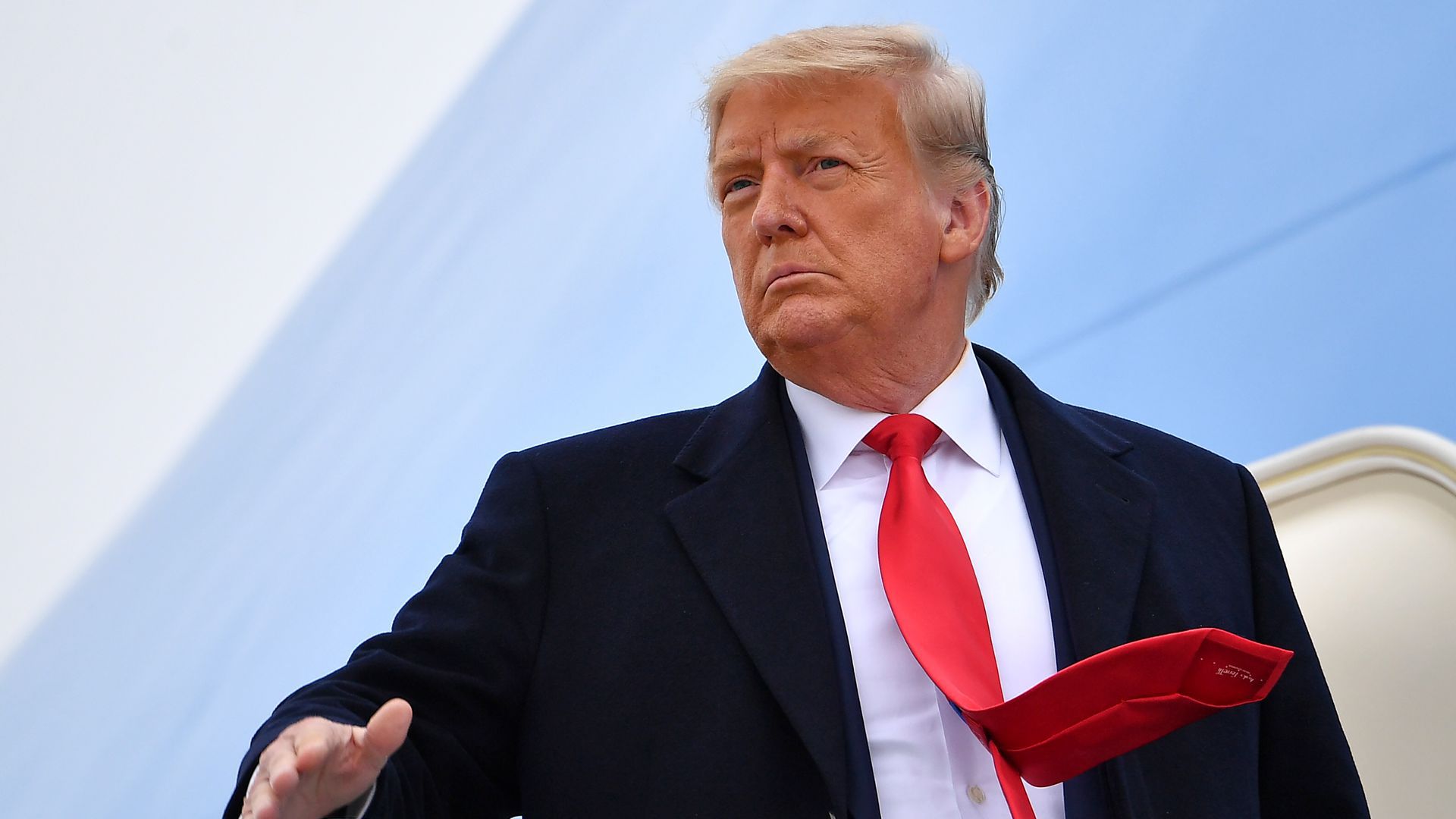Former President Donald Trump, who has complained about censorship by social media giants, has announced class action lawsuits today against Big Tech. Facebook CEO Mark Zuckerberg, Twitter CEO Jack Dorsey and Google Sundar Pichai.
Why it matters: It’s the latest escalation in Trump’s years long battle with Twitter and Facebook over free speech and censorship. Trump is completely banned from Twitter and is banned from Facebook for another two years.
Details: Trump announced at an 11 a.m. press conference Wednesday that he is the lead class representative in a lawsuit being filed with the Southern District of Florida.
- The filing, Trump said, seeks immediate injunctive relief to allow the prompt restoration his social media accounts. He also said he is asking the court to impose “punitive damages” on the three social media giants.
- Trump’s legal effort is supported by the America First Policy Institute (AFPI), a non-profit focused on perpetuating Trump’s policies, through a new legal entity called the Constitutional Litigation Partnership.
- AFPI’s president and CEO and board chair, former Trump officials Linda McMahon and Brooke Rollins, accompanied him during the announcement.
Class action lawsuits would enable Trump to sue the tech CEOs on behalf of a broader group of people that he argues have been censored by biased policies.
- Facebook and Twitter declined to comment.
- To date, Trump and other conservative critics have not presented any substantial evidence that either platform is biased against conservatives in its policies or implementation of them.
The big picture: Data shows that Trump’s megaphone has been significantly muzzled in light of bans from Big Tech platforms, particularly Twitter and Facebook.
- The president and his allies have repeatedly criticized the bans as censorship. The tech giants argue they were put in place for safety reasons following the Capitol siege in January.
- Facebook’s independent Oversight Board affirmed Facebook’s decision to suspend Trump in May.
- Even during his presidency, Trump has tried to take aim at both CEOs and tech companies. In 2020, he signed an executive order that was meant to limit the legal protections that shield social media companies from liability for the content users post on their platforms. President Biden revoked that executive order in May.
Between the lines: Trump has often sued people in the course of his career, but rarely actually followed through in terms of winning a judgment or even taking cases to trial.
What to watch: Lawsuits and actions targeting Big Tech platforms serve as ammunition for Donald Trump‘s conservative base. Down-ballot Republican candidates have latched onto messages around censorship as part of their campaigns and messaging tactics.
story and photo source: https://www.axios.com


Thank you, Mr. President but I don’t even care about the big tech guys. I wouldn’t go back to them for any amount of money. I won’t see your message on twitter.
Great. So, he thinks the founding fathers write the Amendments? And, now, you all do, too, right? 🤦♂️
I am quite sure that is not what he meant. Stop putting words in his mouth.
@heartart – Lol. 🤣 You mean the exact words that I just saw coming out of his mouth on this video? Man, you guys are taking TDS to whole new heights. Congrats on his reinstatement, in January, March, July and, wait for it…. August. This site really needs a dose of reality.
@ray-pasnen – It is obvious who needs a dose of reality and it isn’t anyone who is listening to Mr. Trump. He is the only one who is consistently telling us the truth. You need to get away from all the leftist blubbering and start listening to the real news.
@ray-pasnen 👅
For anyone who needs a refresher course on the Amendments to the Constitution in the Bill of Rights…
“First Amendment: An Overview
The First Amendment of the United States Constitution protects the right to freedom of religion and freedom of expression from government interference. It prohibits any laws that establish a national religion, impede the free exercise of religion, abridge the freedom of speech, infringe upon the freedom of the press, interfere with the right to peaceably assemble, or prohibit citizens from petitioning for a governmental redress of grievances. It was adopted into the Bill of Rights in 1791. The Supreme Court interprets the extent of the protection afforded to these rights. The First Amendment has been interpreted by the Court as applying to the entire federal government even though it is only expressly applicable to Congress. Furthermore, the Court has interpreted the Due Process Clause of the Fourteenth Amendment as protecting the rights in the First Amendment from interference by state governments.”
you can find more at: https://www.law.cornell.edu/wex/first_amendment